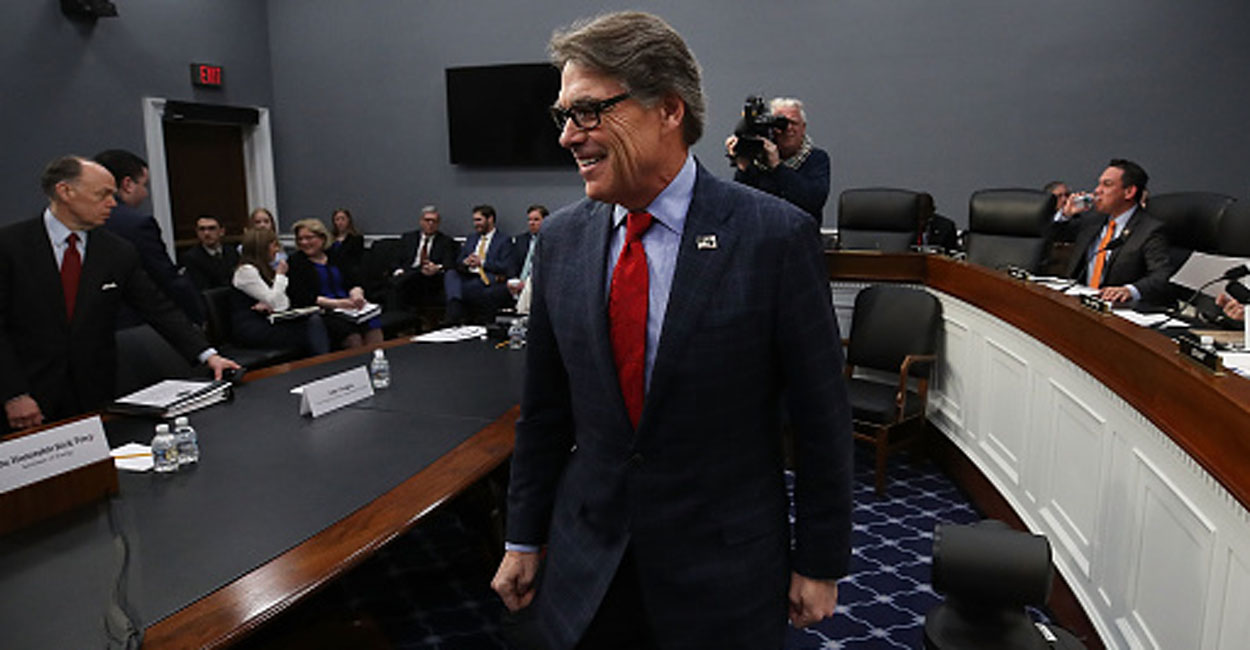The booming economy could grow even more if Senate Democrats would stop obstructing President Donald Trump’s nominees, two Cabinet secretaries said Thursday.
“One thing that has slowed us up a little bit is getting the nominations [through the Senate],” Energy Secretary Rick Perry said at the Conservative Political Action Conference. “Our friends on the Democratic side have not been quite as helpful as we’d like for them to be from the standpoint of getting nominations through.”
Perry said seats on the Federal Energy Regulatory Commission, which regulates the energy industry and approved projects, should be filled.
“FERC still has a couple of openings [and it] could be really important to get those done,” Perry said. “Billions of dollars in projects are going to get approved at FERC … that will allow our natural resources to be moved all around the world.”
In related news, the Senate voted 52-47 Thursday to confirm Andrew Wheeler as administrator of the Environmental Protection Agency. Wheeler, a former lobbyist for the coal industry who had been deputy administrator, has been acting administrator since the resignation of Scott Pruitt eight months ago.
As of Tuesday, Trump had 171 nominations to executive branch positions pending in Senate committees, and 74 nominees on the Senate calendar had yet to have a hearing, according to the White House.
Compared to the four previous administrations going back to President George H.W. Bush, this Senate has confirmed the fewest nominees.
For most nominees, Senate Minority Leader Charles Schumer, D-N.Y., has pushed the procedure of cloture. It requires the maximum of 30 hours of debate in committee before a vote, then another 30 hours of debate on the Senate floor before a final vote.
In many cases, the president’s nominees are noncontroversial, but the procure slows down votes in order to prevent filibusters over nominees.
According to the White House, Trump’s nominees have faced more cloture votes in the first year of his presidency than the cumulative cloture votes for the first terms of his four predecessors. Fully 35 percent of Trump’s nominees await confirmation in the Senate, the White House said.
Transportation Secretary Elaine Chao stressed that this isn’t the fault of the Senate majority leader—her husband, Mitch McConnell, R-Ky.
“There’s not one department in the whole federal government that is fully staffed up in terms of nonpolitical, noncareer leadership,” Chao said.
“At the Labor Department, where I was once secretary of labor, Secretary [Alexander] Acosta has seven nominees that are on the Senate floor,” Chao said. “I have four [Transportation Department] nominees.”
She then took a swipe at Schumer, the top Senate Democrat.
“It’s not the Senate majority leader’s fault. I want to make that very clear. It’s not his fault,” Chao said. “It is the deliberate policy of the Senate minority leader to slow up the nominations of this administration by invoking cloture at every single step of the nominations process on the floor.”
Chao also called for California to give back the billions of dollars in federal grants it won’t be using for the state’s scrapped bullet train idea.
California Gov. Gavin Newsom, a Democrat, announced in February that his state was canceling plans to move forward on its costly high-speed rail project, which was supposed to link San Francisco to Los Angeles.
In 2009, under the Obama administration, the federal government sent two separate grants of $2.5 billion and $929 million to California to develop high-speed rail.
Under the Trump administration, the Federal Railroad Administration initially sought to recover the $929 million, but also notified the state it wants the $2.5 billion back.
“Obviously with the project so radically different than what was proposed to us initially, we will not be giving the $929 million,” Chao said.
“On the $2.5 billion that has already been given, sadly with very little results, we have given the state of California time until March 5 to make their case, because we are very cautious of the process,” she said. “But clearly, this was a classic example of bait and switch. So, on behalf of the American people, we have a right to ask for that $2.5 billion back.”
CPAC, the largest annual national gathering of conservative activists, runs through Saturday at the Gaylord National Resort and Convention Center in National Harbor, Maryland, just outside Washington.
